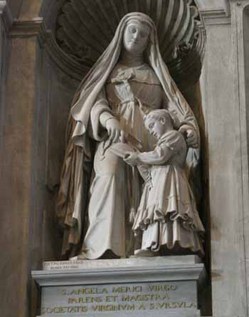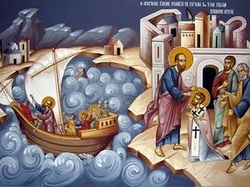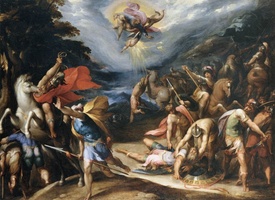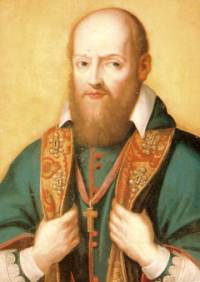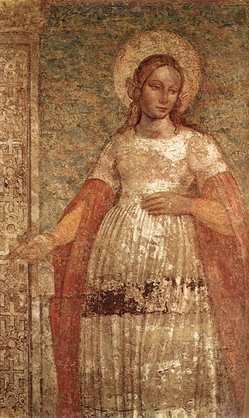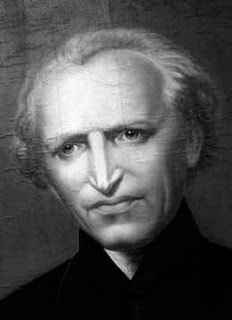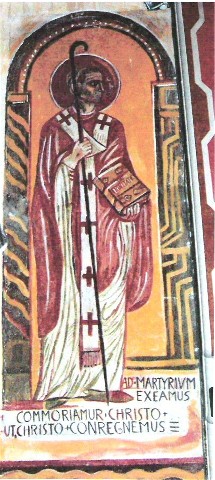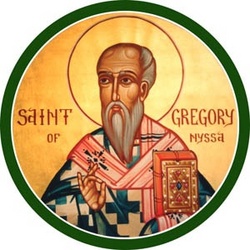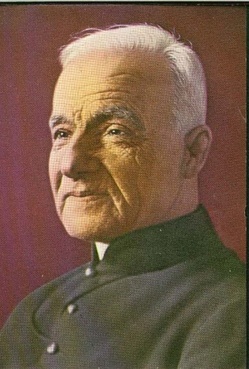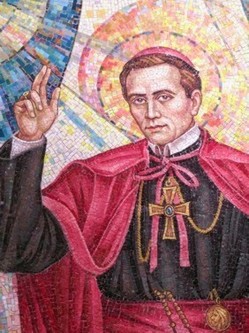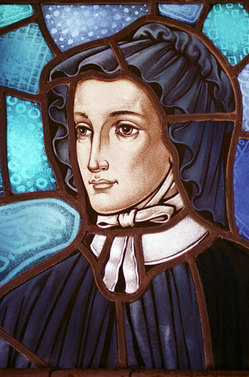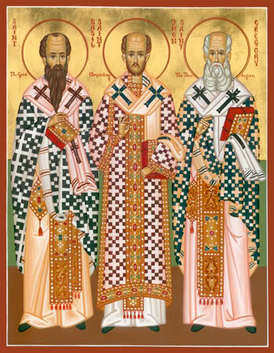The kingdom of heaven is like a mustard seed which a man took and sowed in his field. It is the smallest of all the seeds but when it has grown it is the biggest shrub of all and becomes a tree so that the birds of the air come and shelter in its branches.
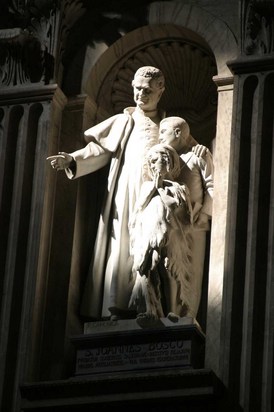
Because today is a Sunday, the Church does not observe the feast of Saint John Bosco, known also as Don Bosco. However, in the Salesian family, Don Bosco's it is a feast day. My encounters with members of the Salesian family have been few so I've poked around their website to learn a little more of the spirit of Don Bosco. The paragraphs are excerpts of a May 10, 1884 letter by Saint John Bosco, considered by some to be the "Magna Carta" of Salesian Education. It is included as an appendix to the Constitutions of the Salesian Society, and given to members of the Salesian Family. In the USA the Salesians are not as known as in other parts of the world. Here, their educational system was perceived to be competing with the Jesuits, and Salesians could not compete. The Jesuits have about 47 high schools in all the major cities. Be that as it may, Saint John Bosco provides for us an insight into effective pastoral ministry. The Salesians of Don Bosco are influential in various sectors of the Church, primarily in education and with the youth. The reasons for this fact are evident in the letter below. If you are interested in the Salesian priests and sisters, visit their website.
From the letter of Don Bosco:
By a friendly informal relationship with the boys, especially in recreation. You cannot have love without this familiarity, and where this is not evident there can be no confidence. If you want to be loved, you must make it clear that you love. Jesus Christ made himself little with the little ones and bore our weaknesses. He is our master in the matter of the friendly approach. The teacher who is seen only in the classroom is a teacher and nothing more; but if he joins in the pupils' recreation he becomes their brother. If someone is only seen preaching from the pulpit it will be said that he is doing no more and no less than his duty, whereas if he says a good word in recreation it is heard as the word of one who loves.
How many conversions have been brought about by a few words whispered in the ear of a youngster while he is playing. One who knows he is loved loves in return, and one who loves can obtain anything, especially from the young. This confidence creates an electric current between youngsters and their superiors. Hearts are opened, needs and weaknesses made known. This love enables superiors to put up with the weariness, the annoyance, the ingratitude, the troubles that youngsters cause. Jesus Christ did not crush the bruised reed nor quench the smouldering flax. He is your model. Then you will no longer see anyone working for his own glory; you will no longer see anyone punishing out of wounded self-love; you will not see anyone neglecting the work of supervision through jealousy of another's popularity; you won't hear people running others down so as to be looked up to by the boys: those who exclude all other superiors and earn for themselves nothing but contempt and hypocritical flattery; people who let their hearts be stolen by one individual and neglect all the other boys to cultivate that particular one. No one will neglect his strict duty of supervision for the sake of his own ease and comfort; no one will fail through human respect to reprimand those who need reprimanding. If we have this true love, we shall not seek anything other than the glory of God and the good of souls. When this love languishes, things no longer go well. Why do people want to replace love with cold rules? Why do the superiors move away from the observance of the rules Don Bosco has given them? Why the replacement little by little of loving and watchful prevention by a system which consists in framing laws? Such laws either have to be sustained through punishment and so create hatred and cause unhappiness or, if they are not enforced, cause the superiors to be despised and bring about serious disorders. This is sure to happen if there is no friendly relationship. So if you want the Oratory to return to the happiness of old, then bring back the old system: let the superior be all things to all, always ready to listen to any boy's complaints or doubts, always alert to keep a paternal eye on their conduct, all heart to seek the spiritual and temporal good of those Divine Providence has entrusted to him. Then hearts will no longer be closed and deadly subterfuge will no longer hold sway. The superiors should be unbending only in the case of immoral conduct. It is better to run the risk of expelling someone who is innocent than to keep someone who causes others to sin. Assistants should make it a strict duty in conscience to refer to the superiors whatever they know to be an offence against God.
